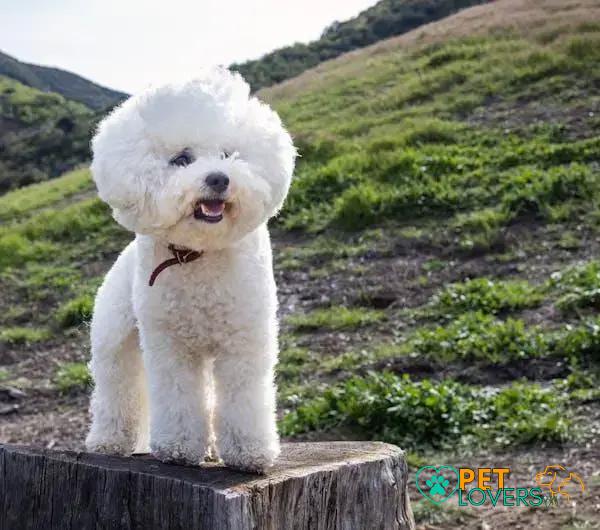Curiosities about the Bichon Frisé abound, making this breed an intriguing subject for dog enthusiasts. Known for their fluffy white coat and cheerful disposition, the Bichon Frisé has a rich history and unique characteristics that set them apart. In this post, discover fascinating details that will deepen your appreciation for these adorable pets. Read on to explore their origin, traits, and care tips.
The Origin and History of the Bichon Frisé
The Bichon Frisé is believed to have its origins in the Mediterranean region. These cheerful little dogs can be traced back to the 14th century, where they were popular among the nobility. Originally, they were used as companions for sailors due to their cheerful disposition and small size.
During the Renaissance period, the Bichon Frisé gained favor in the courts of Italy and France. They were often depicted in paintings alongside royalty, symbolizing their esteemed status. The breed’s charm and affectionate nature made them a beloved pet among the aristocracy.
By the late 19th century, the breed’s popularity waned, and they were often seen performing in circuses and fairs across Europe. Their adaptability and intelligence made them excellent performers. Despite their fall from royal favor, these attributes helped ensure the breed’s survival through difficult times.
In 1933, the Fédération Cynologique Internationale (FCI) recognized the breed officially, calling it the Bichon à poil frisé. The breed’s fortunes turned once again after World War I, when French families began adopting them as pets. This period marked the beginning of their resurgence in popularity, which continues to this day.
Today, the Bichon Frisé is known worldwide for its cheerful personality and distinctive fluffy coat. The breed’s journey from the Mediterranean region to modern homes across the globe is a testament to their enduring appeal and adaptability.
Unique Characteristics and Traits
The Bichon Frisé is well-known for its distinctive look. Their fluffy, white coat makes them appear like tiny clouds. Unlike other breeds, their hypoallergenic fur makes them suitable for allergy sufferers. Bichon Frisés have a curly, dense coat that requires regular grooming to keep it looking best.
Bichons are highly affectionate and form close bonds with their families. They are known for their playful and cheerful disposition. These dogs are also quite intelligent and easy to train, which makes them a popular choice for obedience competitions.
A unique trait is their low shedding fur, meaning fewer allergens and less cleanup. Another noteworthy characteristic is their adaptability. Bichons are comfortable in both apartment living and larger homes, as long as they get enough attention and exercise.
Despite their small size, they have a bold personality. They are not shy and often think they are bigger than their actual size. Bichons are alert and make for good watchdogs, displaying surprising vigilance and awareness of their surroundings.
Overall, Bichon Frisés possess a blend of charm, intelligence, and adaptability, making them a standout breed with several unique traits worth noting.
Caring for Your Bichon Frisé
Giving your Bichon Frisé proper care is crucial for their health and happiness. Regular grooming is essential due to their thick, curly coat. Brush their fur daily to prevent mats and tangles. Professional grooming every 4-6 weeks helps keep them looking their best.
Bichons are prone to dental issues, so daily teeth brushing is recommended. Use a pet-safe toothpaste to maintain their oral health and prevent bad breath.
To keep your Bichon fit, routine exercise is necessary. Short walks or play sessions each day will suffice, as they are small and have moderate energy levels. Avoid overly strenuous activities.
Proper nutrition is key. Feed your Bichon a balanced diet with high-quality dog food. Consult your vet to ensure they receive the right nutrients for their age, size, and health status.
Regular vet check-ups are important. Bichons can be prone to allergies and skin issues, so keep an eye on any symptoms and seek prompt veterinary care if needed. Vaccinations, flea control, and heartworm prevention should be up to date.
Socialization and Training
Bichons are friendly and social dogs. Early socialization with people and other pets helps them develop a well-rounded temperament. Basic obedience training is also important to teach them good manners and proper behavior. Positive reinforcement techniques work best for this intelligent breed.

